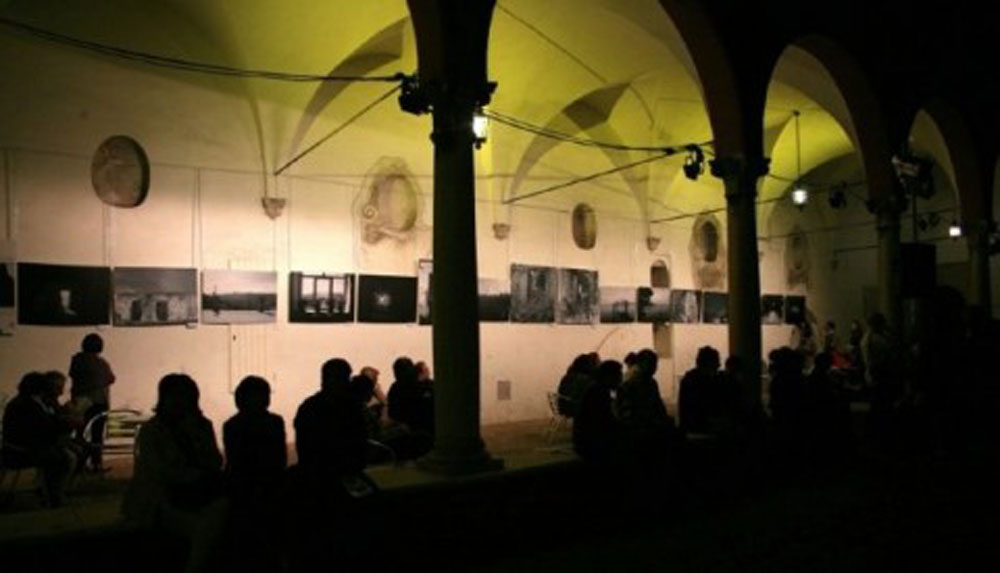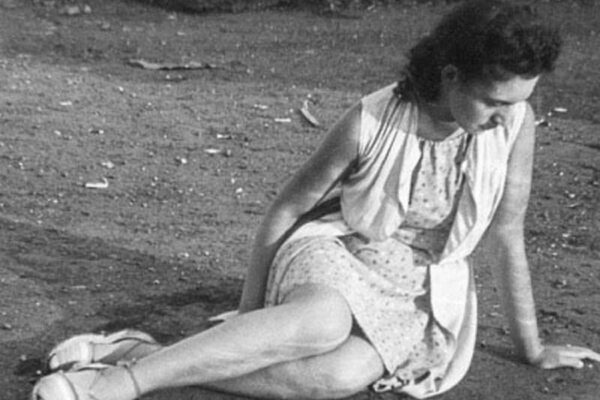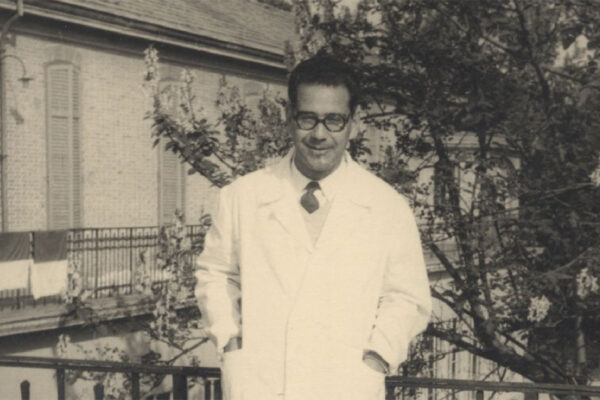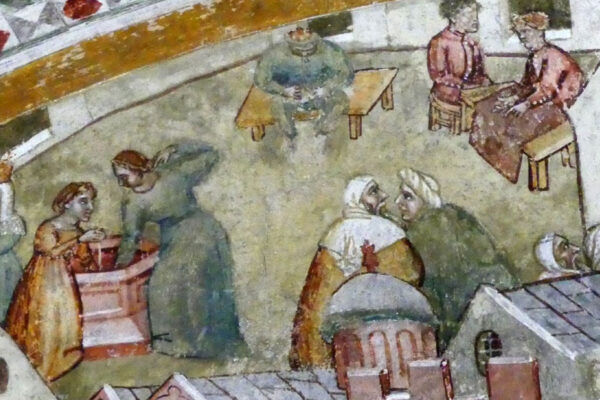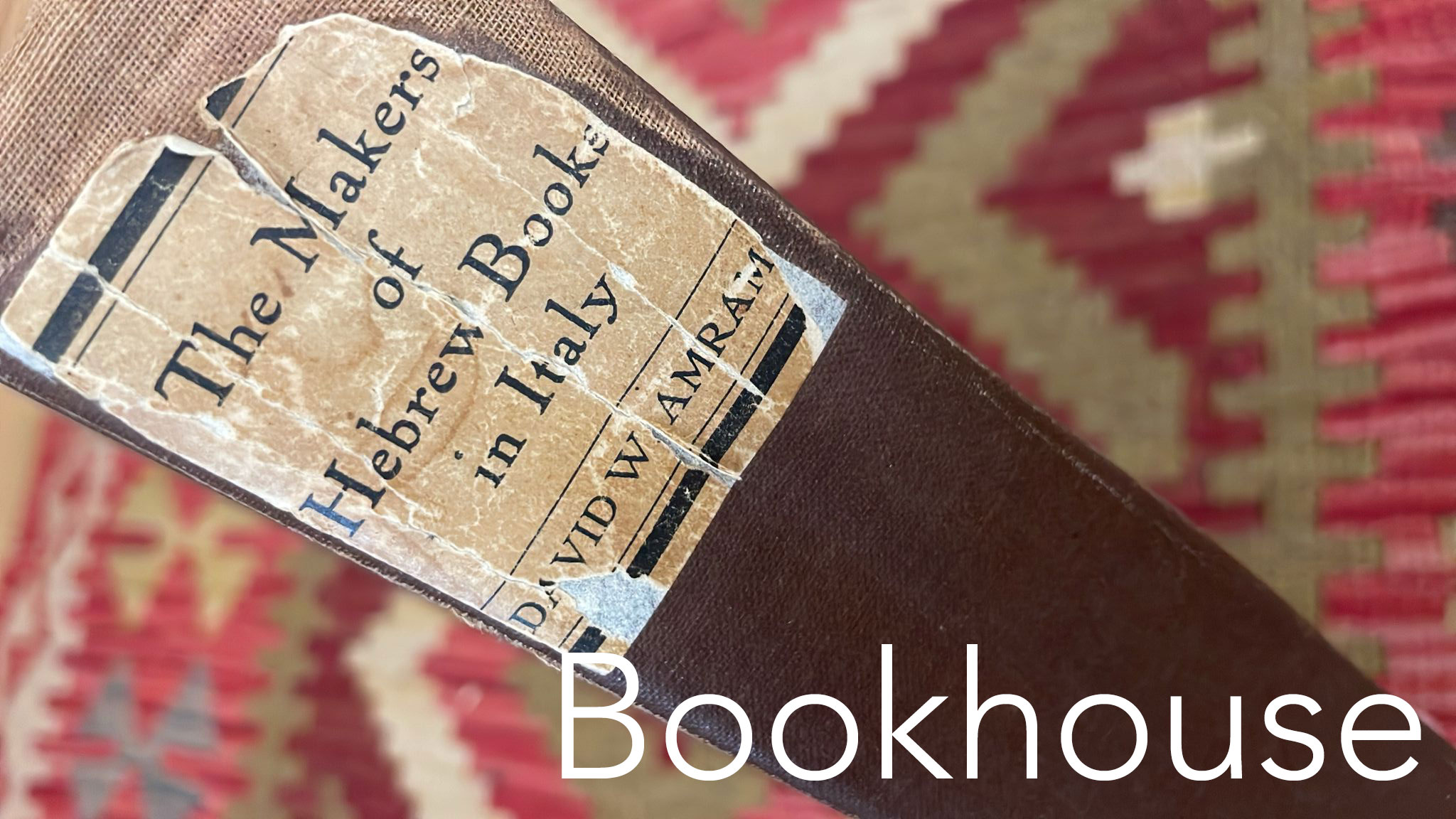The People of the Book and Their Books: Ferrara Celebrates Jewish Continuity and Book Publishing in Italy
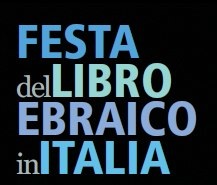 Alessandro Cassin interviews Riccardo Calimani
Alessandro Cassin interviews Riccardo Calimani
The first edition of the Italian Jewish Book Fair (La Festa del Libro Ebraico in Italia), is about to open its doors in Ferrara from April 17th to the 21st. Conceived as a “cultural laboratory”, it is also meant to anticipate and prepare the forecoming inauguration of the Museo Nazionale dell’Ebraismo e della Shoah (MEIS). Among other pursuits, the fair proposes to reassess the centrality of Ferrara in the Italian Jewish cultural landscape through the lineage of books, from ancient to contemporary. Under the direction of Riccardo Calimani, president of MEIS, the fair will present roughly 1500 new books on Jewish subjects, written in Italian or translated into Italian. It will feature numerous readings, lectures, debates, films, concerts, even food tastings. Last but not least, there will be an exhibit of ancient Jewish books that will run until the end of the month.
The substantial publishing tradition established by the Jews during their more than 2,000 year continuous presence in Italy is well documented. Interestingly, in the past two decades, the quantity and variety of texts both on Jewish themes and by Jewish authors attest to the growing interest for the topic within Italian society. When MEIS will officially open it will be the first Italian National Museum dedicated to Judaism and the Shoah. It will also mark the recognition by the Italian parliament of the Jewish contribution to the cultural fabric of the country, as well as further testimony on the curiosity of Italians for Jewish the history, thought and tradition in their midst.
The choice of Ferrara for both the museum and the book fair appears particularly significant: the city had an uninterrupted Jewish presence since 1100, starting true expansion under the House of Este, which allowed the community to thrive. After the Jewish expulsion from Spain, Ercole Primo and his wife Eleonora started by granting twenty-one families permission to settle in Ferrara. This soon attracted other fugitives, among them many Maranos from Portugal, now openly practicing Judaism again. In the Twentieth Century Jewish Ferrara has been immortalized in a cycle of novels by Giorgio Bassani, including a vivid description of a synagogue, which, with exception of the Nazi-Fascist years, has been in use since the early Renaissance.
Riccardo Calimani, renowned historian of Italian and European Judaism (Premio Cultura della Presidenza del Consiglio dei Ministri, 1986, Premio Europeo per la Cultura, 1977) is the president of the Fondazione Nazionale Museo dell’Ebraismo e della Shoah, Ferrara and the driving force behind the book fair.
Alessandro Cassin: During the history of Italian Jews the production of books – from manuscripts to printing and publishing – has played a major and lasting role…
Riccardo Calimani: While there is a long, rich and particular history in the relationship of Italian Jews to book production, this should be seen in the context of the relationship between Jews all over Europe and books, and before that, manuscripts. The fascination with books is a testimony of the Jewish interest in education. In ancient times, when education was the privilege of an elite, regardless of their social status, Jews carried on with their studies. They studied their sacred texts, they studied manuscripts and eventually studied books.
AC: In Italy, modern publishing began around 1500…
RC: At the time publishing meant the beginning of mass communication: while manuscripts had limited circulation, the printed press allowed the distribution of the texts multiplied by 10, 100, 1000… The printed press generated another important step: the manuscript text was codified, became definitive, assuming a previously unknown authority. This eliminated variations and errors inevitable in manuscripts. In other words the birth of modern publishing meant the codification of the texts, be it the Bible, the Talmud, the Mishna.
While in Italy the early printers belonged to the Venetian nobility, the actual bookmakers, that is the intellectuals, the proofreaders, the binders, were the Jews. They were involved in the production not only of Jewish books, but also many others, such as Greek Orthodox and Latin ones.
AC: Jumping ahead, by the Eighteenth Century Jews found in publishing an outlet for their intellectual and entrepreneurial drive.
RC: In the Eighteen and Nineteenth Century, Europe witnessed an unprecedented flourishing of Jewish intellectuals. I like to think of them as “metaphorical Marranos”. The first Jewish intellectual at a European level was of course Spinoza, who was both a real Marrano and a metaphorical one.
AC: What do you mean by “metaphorical Marrano”?
RC: I am referring to that split, typical of the Marrano predicament, between the Jew who wants to conquer European culture and European culture itself. The vast number of Jews who became intellectuals in the 1800 and 1900’s embodied this condition of metaphorical Marranos. These individuals excelled in many intellectual disciplines because they were not tied to rigid social structures and thus more adaptable to modernity. This flourishing was reflected in the world of books particularly through the efforts of Jewish publishers in Italy and elsewhere in Europe.
AC: The interest in Jewish themes from non-Jewish publishing houses is not a new phenomenon, yet it appears that in the past 15 years this trend has grown exponentially, reflecting an increased curiosity within Italian society. How do you explain it?
RC: There are many possible explanations. The most obvious is that Jewish authors and intellectuals are particularly open, modern and less dogmatic. They often bring testimonies of heterogeneous existential and cultural experiences.
AC: The number of new Italian books on Jewish themes is staggering compared to the size of its Jewish minority; do you think there is a risk of overexposure?
RC: Talking numbers, in a country with 25.000 Jews, the quantity of books produced would appear to be already an overexposure. Yet the truth is that the public for these books is much larger that the Jewish minority itself!
AC: What are the goals of this first Italian Jewish Book Fair?
RC: We are in the process of conceiving a National Museum of Italian Judaism and of the Shoah and before the building is erected we are trying to make our existence known through cultural initiatives. Our museum will not be one of paintings and statues, but rather a dynamic cultural laboratory of ideas. A book fair of this kind seems like an ideal first step toward opening up discussion, circulating ideas and promoting educational tools on the very themes that will make up the future museum.
AC: Within the busy schedule of this book fair are there some events that you feel best represent the spirit of this undertaking?
RC: I am proud of the program in its entirety! I enjoy the atmosphere of freedom that this fair has unleashed: we were able to make our choices autonomously, without any outside pressure. I don’t take personal credit for this, but I take pride in having presided over a process in which freedom, openness and transparency were the guiding principles.
AC: The creation of a new museum of this type must pose great challenges at every step…
RC: Indeed, as well as potential great rewards. For this reason I would like to use this platform, in order to launch an appeal for cooperation across the ocean.


